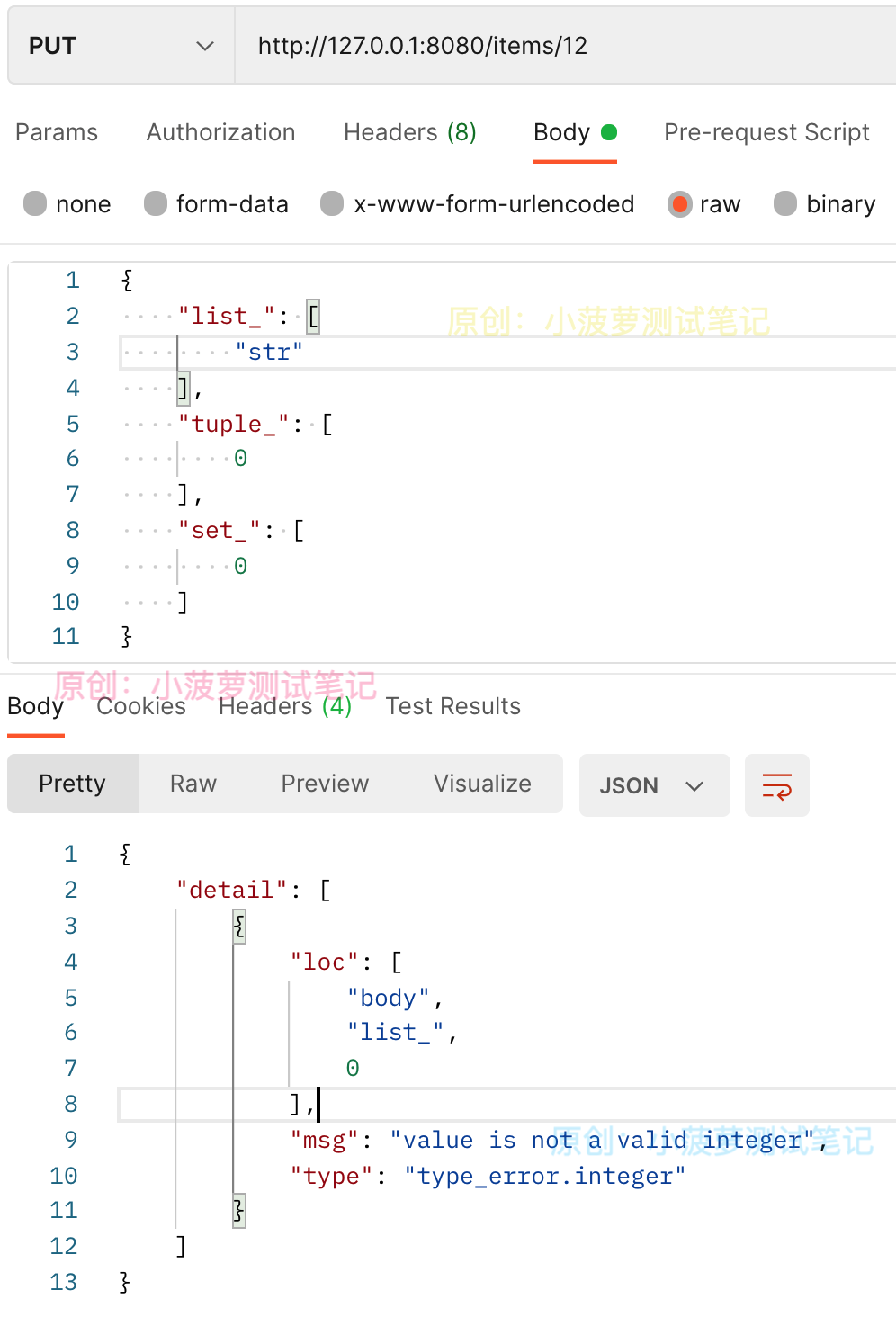使用 typing 中的 List、Set、Tuple 的栗子
from typing import Optional import uvicorn from fastapi import FastAPI, Body from typing import List, Tuple, Set app = FastAPI() @app.put("/items/{item_id}") async def update_item( list_: List[int] = Body(...), tuple_: Tuple[int] = Body(...), set_: Set[int] = Body(...), ): results = {"list_": list_, "tuple_": tuple_, "set_": set_} return results if __name__ == "__main__": uvicorn.run(app="9_typing:app", host="127.0.0.1", port=8080, reload=True, debug=True)
期望得到的请求体
{ "list_": [ 0, 1 ], "tuple_": [ 0, 2 ], "set_": [ 0, 3 ] }
假设里面的元素传了非 int 且无法自动转换成 int
- typing 的 List、Set、Tuple 都会指定里面参数的数据类型
- 而 FastAPI 会对声明了数据类型的数据进行数据校验,所以会针对序列里面的参数进行数据校验
- 如果校验失败,会报一个友好的错误提示

使用 list、set、tuple 的栗子
用 Python 自带的 list、set、tuple 类,是无法指定序列里面参数的数据类型,所以 FastAPI 并不会针对里面的参数进行数据校验
@app.put("/items/{item_id}") async def update_item( list_: list = Body(...), tuple_: tuple = Body(...), set_: set = Body(...), ): results = {"list_": list_, "tuple_": tuple_, "set_": set_} return results

变成传啥类型的值都可以
总结
要充分利用 FastAPI 的优势,强烈建议用 typing 的 List、Set、Tuple 来表示列表、集合、元组类型